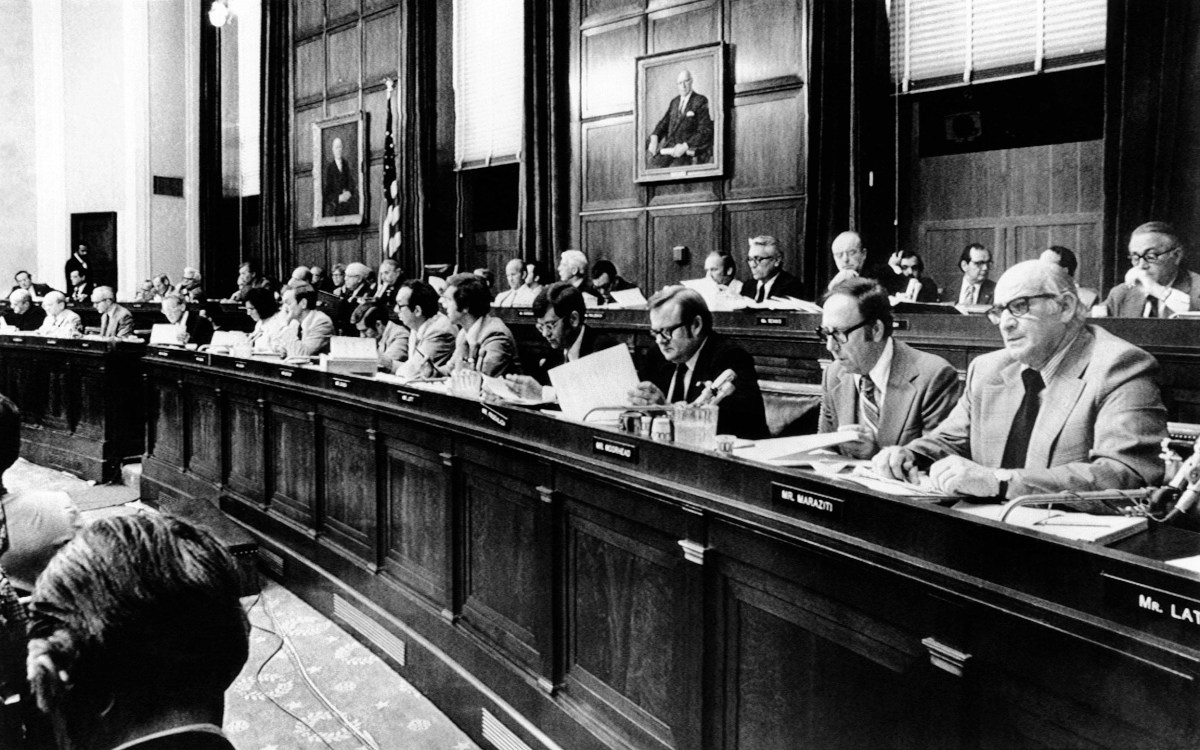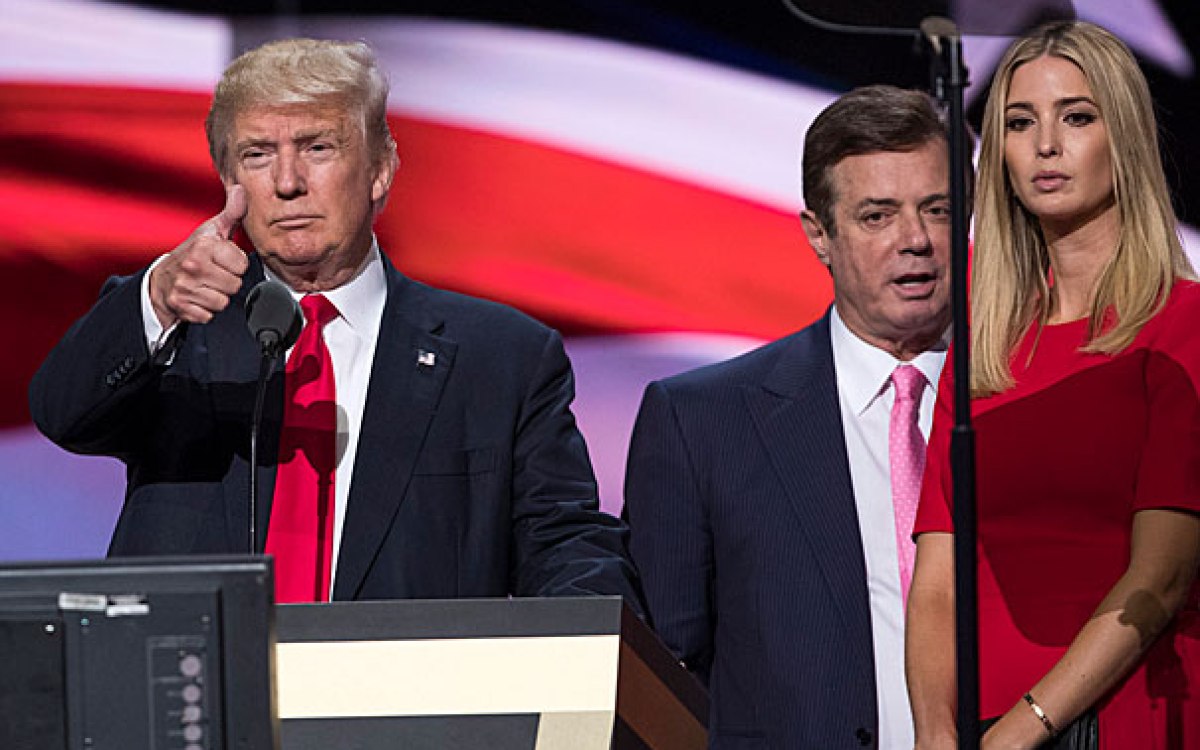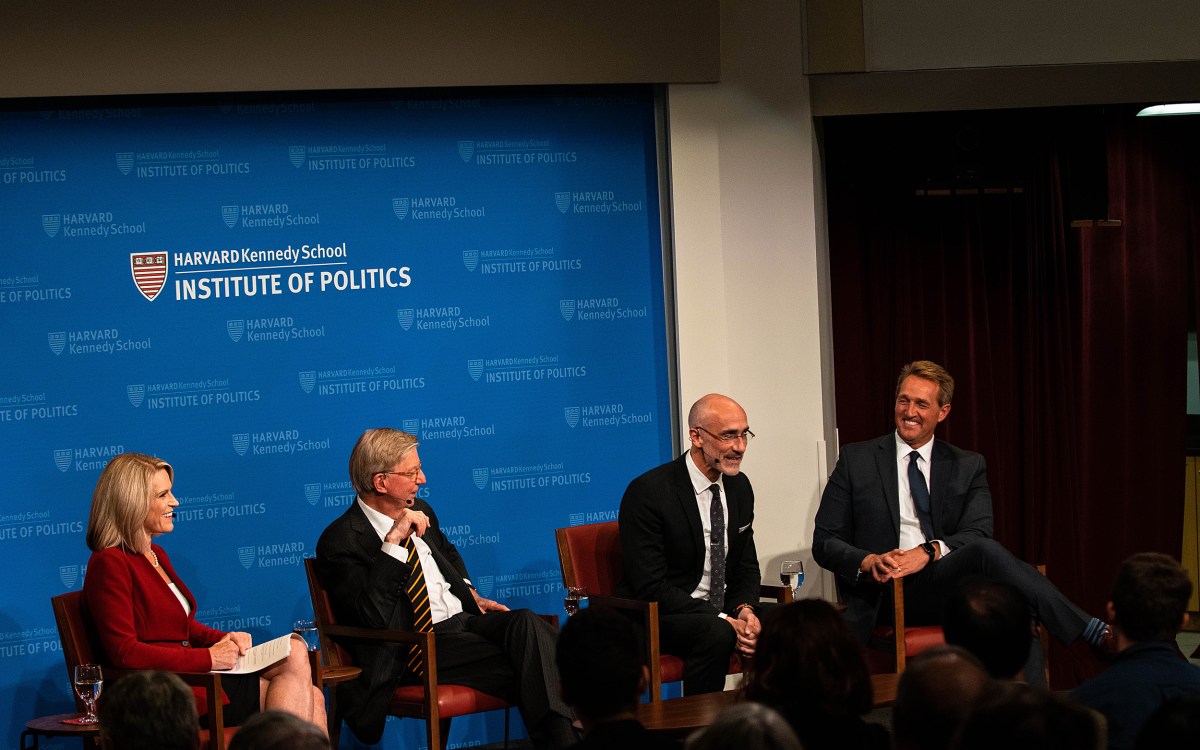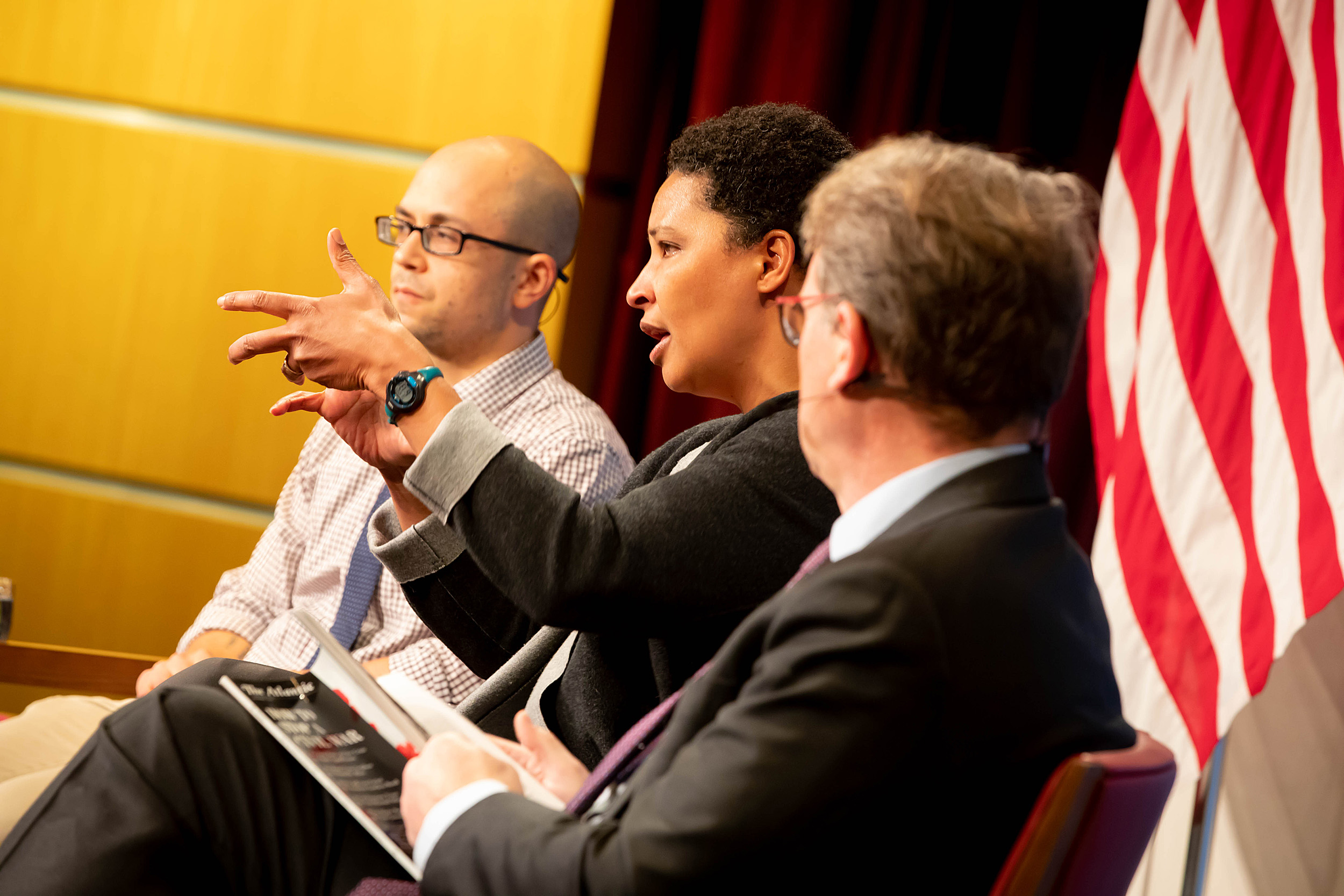
University Professor Danielle Allen (center) with writer Adam Serwer (left) and editor Jeffrey Goldberg, both from The Atlantic.
Photos by Rose Lincoln/Harvard Staff Photographer
Can this union be saved?
Contributors to a special issue of The Atlantic discuss the prospects of healing a riven nation
With congressional Republicans and Democrats arguing over whether the president should be impeached, ever-deepening political and cultural acrimony has turned us into the Divided States of America.
Jumping off from The Atlantic’s December issue, “How to Stop a Civil War,” editor in chief and author Jeffrey Goldberg spoke with contributors Danielle Allen, James Bryant Conant University Professor at Harvard, and Adam Serwer, staff writer at The Atlantic, about the prospects for reconciling our differences and restoring faith in democracy at a JFK Jr. Forum on Tuesday evening.
Allen, a political theorist who runs the Democratic Knowledge Project, said “fragmentation” is the biggest danger to American democracy today. Voters are becoming more geographically, culturally, and socially disconnected, retreating further into ideological and informational silos. Similarly self-governing structures like the U.S. Congress, which rely on cooperation and consensus, find themselves able to agree on very little, she said. The inability to get anything done erodes the faith of voters in democratic institutions, creating an environment demagogues can exploit. Healthy, well-functioning democracies require that individuals sometimes set aside specific preferences for the sake of the greater good, so if we are to be ‘a more perfect union,’ the country needs to prioritize ‘union,’ Allen argued.
Serwer writes frequently about race and is best known for his critique of the Trump administration’s immigration policies, concluding “the cruelty is the point.” He attributes the nation’s current climate of incivility, particularly in political discourse, as one that stems ultimately from still-unresolved issues over race.
“This question of reconciliation should not be prized over the survival of liberal democracy itself the way it was more than 100 years ago” during the Civil War, said Serwer, a fellow at the Shorenstein Center for Media, Politics, and Public Policy last spring. “How we end polarization, the terms on which it ends, are far more important than the fact that it ends.”
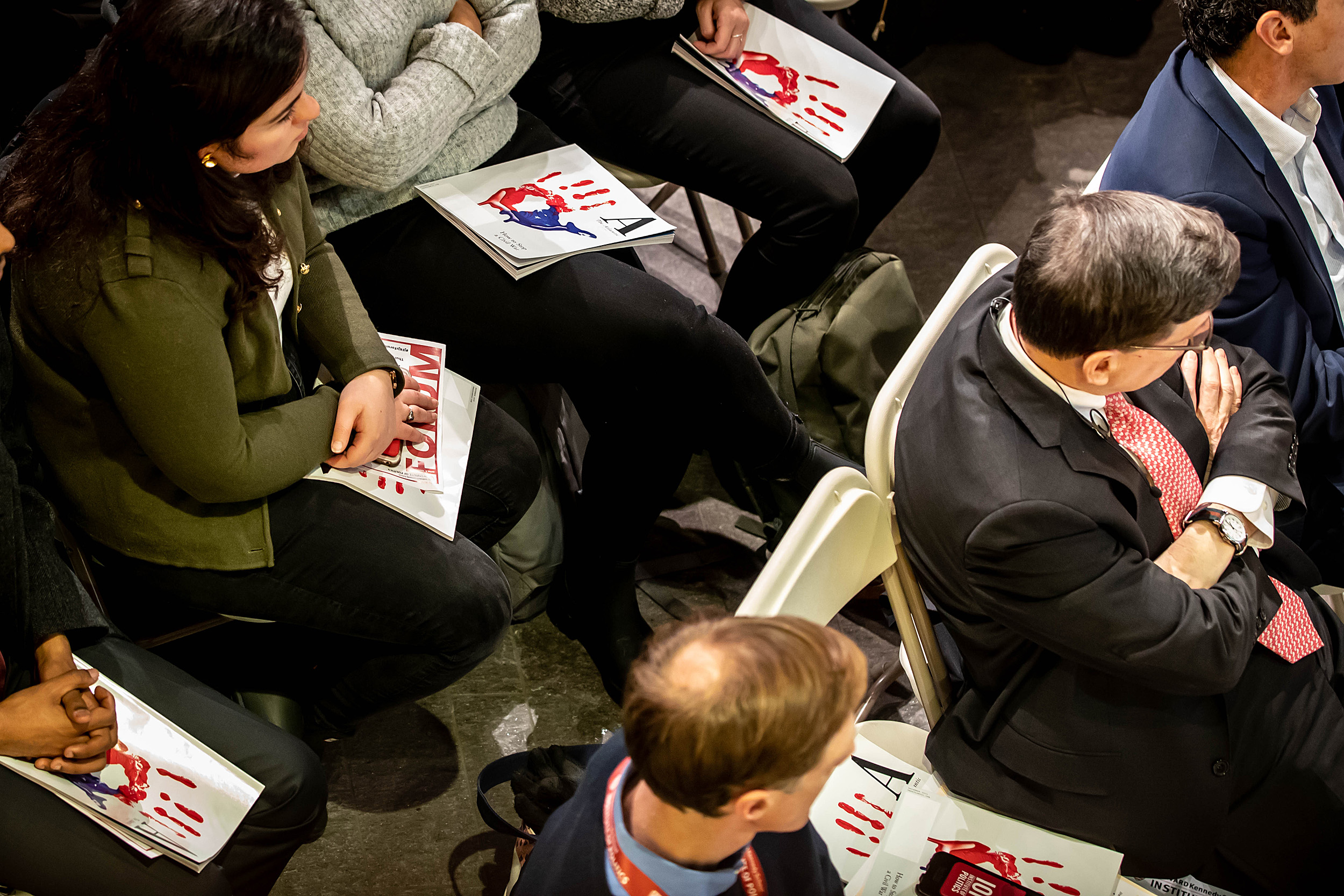
The rightward shift of the Republican Party, particularly since Trump’s election, is a direct reaction to demographic and cultural changes in the country that aren’t going anywhere, making a path to reconciliation very difficult, said Serwer.
“I think the big obstacle to this is that you have a faction of people in the United States who really feel like they are fighting an existential battle against annihilation,” a misguided notion “that the president has cultivated to a tremendous advantage. So they don’t feel like they can lose because if they lose, it’s over,” he said. “So it doesn’t matter what Donald Trump does; it doesn’t matter whether he breaks the law; it doesn’t matter whether he violates the Constitution. He’s the only one standing between you and total Armageddon.”
Serwer added: “I honestly don’t know how we resolve that in a way that makes people feel as though they are not fighting for their lives — because they’re not. I think they simply just do not want to relinquish the power that they are used to holding for themselves and have for 200 years.”
Allen agreed that “reconciliation that does not include everyone isn’t reconciliation,” but added that there are meaningful reforms that can be made to our democratic institutions, including a “dysfunctional” Congress. However, when we consider changes, it’s important that we build structures “that make it worthwhile to keep investing in this process of doing work together,” she said.
Historically, under the two-party system, political polarization de-escalates only when one side loses power and then repositions itself so its views are in line with the greatest number of voters. But with gerrymandering and other rules in place, parties today can retain power without attaining a majority, eliminating the need to recalibrate their ideological stances, Allen said.
Restoring Congress so that it better represents the voice of the people through ideas like ranked voter choice, which would have a moderating influence, and forcing candidates to move away from scorched-Earth campaign strategies or lose votes could be a start, Allen said. Bringing back civic education, so students learn how institutions are supposed to work, see their inherent value, and understand the vital role citizens have to play in civic life, is also important. Whatever the changes, they will likely occur at the state and municipal levels, not the federal, she said.



